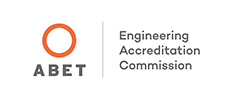On this page:
- Why Choose Electrical Engineering?
- Careers
- Real-World Experience
- Success Stories
- Academics and Curriculum
- Admission
- Accreditation and Program Outcomes
Why Choose Electrical Engineering?
Electrical engineers make big dreams into reality—in the areas of alternative energy, wireless communications, electronic surveillance, computing technology, and semiconductor devices. Electrical engineers are at the forefront of technological advances. Imagine being part of a team that uses a CCD array to create an artificial retina, or a non-tethered pacemaker the size of a vitamin pill. How about developing an alternative-energy system to give a rural homestead power and wireless access, or designing the next generation of autonomous vehicles that conserve energy, plan routes and eliminate collisions? Closer to home, you can imagine a system that monitors your grandmother’s health, automatically administers her medication, and communicates remotely with care providers to allow her to live safely and with confidence in her own home.
Careers
With a degree in electrical engineering, you can work in power systems, transportation, wireless communications, medical devices, home entertainment, sensors, and more to improve the modern world. Become an electrical engineer and design new, better electronics that lead the way for our future technology.
Our graduates are employed by:
- AES Ohio
- AFLCMC/USAF
- Ball Aerospace
- Booz Allen Hamilton
- BWI Group
- Crown Equipment
- Emerson Climate Technologies
- Electric Power Systems
- F&P America
- Heapy Engineering
- ITW Food Equipment
- Kodak
- Leidos
- NASIC
- Northrop Grumman
- Proctor & Gamble
- Radiance Technologies
- Riverside Research
- Trimble
- SRC
- UDRI
- Yaskawa Motoman
Our graduates work as:
- Application Engineer
- Automations Control Engineer
- Circuits Engineer
- Controls Engineer
- Electrical Engineer
- Electronic Warfare Engineer
- Embedded Software Developer
- Power Systems Engineer
- Reliability Engineer
- RF Engineer
- Signal Processing Engineer
- Systems Engineer
- Test Engineer
- UAV Analyst
It's never too early—or too late to start managing your career in engineering. Learn more about the Brandeberry Career Development Center.
Real-World Experience
Electrical engineers have driven the technology explosion our world has experienced for the past 60 years. Innovations in electrical engineering now touch every aspect of our lives. Outside the classroom, our students have gained real-world experiences through internships and co-ops with local companies such as MacAulay-Brown, Booz Allen Hamilton, Northrop Grumman, and Wright State Research Institute.
Success Stories
Academics and Curriculum
View the Bachelor of Science in Electrical Engineering program information, degree requirements, and graduation planning strategy in the Academic Catalog.
Admission
If you are interested in an engineering and computer science degree, review the admission requirements and complete the admission application. You should indicate yourdesired major on your application. If you meet university admission requirements you are admitted to the college.
Accreditation and Program Outcomes
The Bachelor of Science program in Electrical Engineering is accredited by the Engineering Accreditation Commission of ABET, www.abet.org, under the General Criteria and the Program Criteria for Electrical, Computer, Communications, Telecommunication(s) and Similarly Named Engineering Programs.

ABET Accreditation
Annual Student Enrollment: 126 (Fall 2023)
The total number of graduates: 27 (Summer 2022-Spring 2023)
Educational Objectives:
Within a few years, graduates of our Bachelor of Science in Electrical Engineering program can:
- Attain post-graduation licensure, graduate degrees, and transition through professional roles with increasing complexity, responsibility, and fulfillment. [ADVANCE]
- Contribute to society through engagement in social, ethical, professional, and leadership activities. [ENGAGE]
- Assume technical leadership and mentor roles. [LEAD]
Student Outcomes:
Students who complete the B.S. in electrical engineering will have:
- an ability to identify, formulate, and solve complex engineering problems by applying principles of engineering, science, and mathematics
- an ability to apply engineering design to produce solutions that meet specified needs with consideration of public health, safety, and welfare, as well as global, cultural, social, environmental, and economic factors
- an ability to communicate effectively with a range of audiences
- an ability to recognize ethical and professional responsibilities in engineering situations and make informed judgments, which must consider the impact of engineering solutions in global, economic, environmental, and societal contexts
- an ability to function effectively on a team whose members together provide leadership, create a collaborative and inclusive environment, establish goals, plan tasks, and meet objectives
- an ability to develop and conduct appropriate experimentation, analyze and interpret data, and use engineering judgment to draw conclusions
- an ability to acquire and apply new knowledge as needed, using appropriate learning strategies

